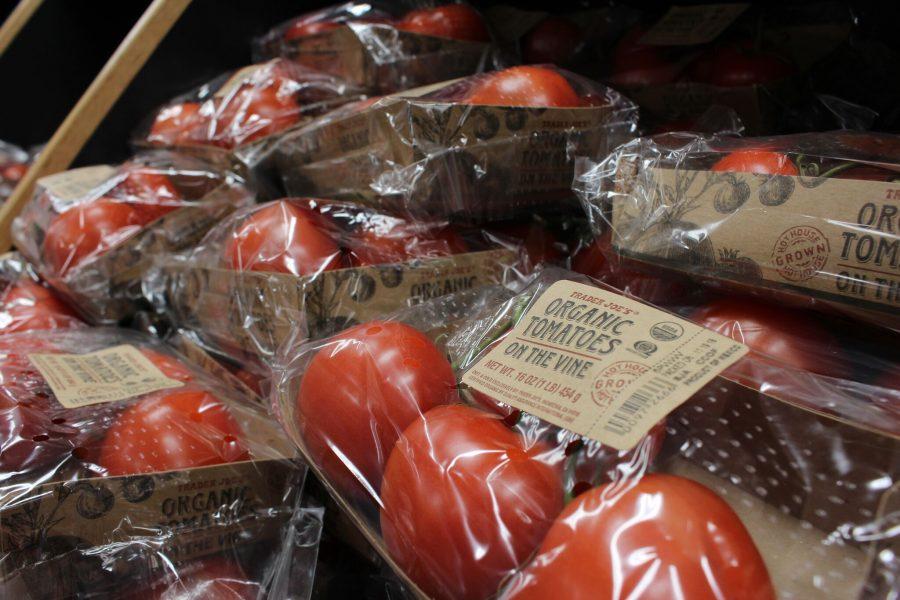Decode the Buzzwords on Your Food Labels
Foods, such as organic tomatoes found at Trader Joe’s, help promote sustainability.
November 30, 2016
Trying to eat healthy or sustainable foods is an effort in and of itself, but understanding the labels and terminology that surround healthy eating are another hurdle entirely. Certain terminology is often pasted and used to advertise the sustainability and health benefits of food, but can leave us confused when standing in the middle of Whole Foods.
Here is your guide to navigating a way to better eating with an increased understanding of what you’re putting into your body:
Non-GMO
If you frequent organic grocery stores, you’re no stranger to seeing the small blue box label with the butterfly and “Non-GMO Project Verified” pasted on the front of food products. GMO stands for “genetically modified organism,” which means it may be a plant, animal, or organism that has been altered by technology to create new DNA combinations, resulting in genes that would not normally exist naturally. This can produce unknown toxins and allergens. Non-GMO verification indicates that the food produce has undergone an extensive process to guarantee it’s non-GMO status. It promises that the ingredients of the food product were not genetically engineered.
Organic
If you see that your produce is organic, then you know it has been grown and cultivated in soil that has not been touched by fertilizer or pesticide for three years before harvesting. For meat, organic means the animals were fed organic feed, were in ‘natural’ living conditions such as grazing on real pastures, and were not given hormones or antibiotics. Organic packaged foods indicate at least 70% of its ingredients are organic, meaning that there are no artificial dyes or preservatives. All in all, if you see a food product bearing the “USDA Organic” label, you’ll know the food was managed, produced, grown or raised without genetic engineering.
Clean-Label
You know the feeling of uncertainty and confusion when reading the list of ingredients on a food product label? The growing Clean-label trend fights against that. They ban obscure food jargon and artificial chemicals and preservatives from ingredient lists so that the consumer knows exactly what they are buying and putting into their bodies. Clean-label demands transparency between the food suppliers and the consumers, further promoting natural ingredients to be used and consumed.
Fair-Trade
If a product is fair-trade certified, it is verified to have been made with respect to the earth, the products, and the consumers. Fair Trade USA works to verify and protect both the planet and people under sustainable development and community empowerment through social, economic and environmental guidelines. Fair-trade ensures that the farmers they work with are given the information and tools needed to receive a fair price for their food products. The organization also asks consumers to have keep a consumerism awareness as they purchase their food. Fair Trade certified, however, does not mean that the products are organic, but it does mean they are non-GMO. Fair Trade USA has thorough standards to cultivate powerful and prosperous communities and businesses, protect the earth through proper waste management and natural cultivation, as well as promoting safe and fair working conditions.
Email Tiffanie Hwang at [email protected].















































































































































